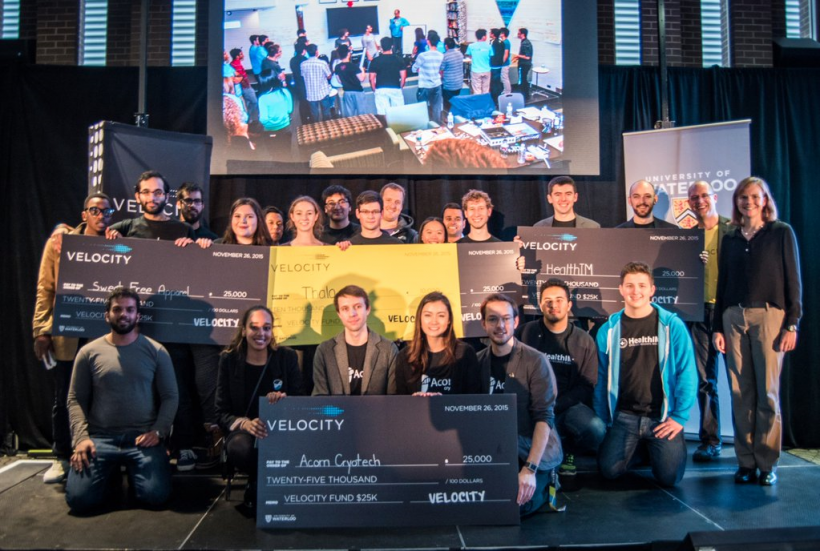About 500 students and faculty packed the Student Life Centre at the University of Waterloo last month and saw why their school is often called Canada’s MIT.
The space resembled a food court at any mall, but there was a rare buzz in the air Nov. 26 as 10 companies competed to grab a share of more than $100,000 in prize money being awarded that day by the Velocity Fund. Velocity is the university’s tech accelerator, and it has its own fund, which each year hands out a total of about $400,000 to the best startups working in the accelerator.
It’s difficult to find a university these days without programs that work with students to develop companies based on innovative technologies. It’s extremely encouraging.
But spending time in Waterloo, you’re smacked in the face by the realization that this institution is peerless in the volume and sophistication of its startups.
“The culture of the university has always been entrepreneurial,” said Mike Kirkup, director of Velocity.
“It was founded by engineers that needed help and expertise to help grow their businesses.”
Communitech, Velocity Expanding
Because of its reputation for entrepreneurship and sciences, the university attracts students with a proficiency for these disciplines. Last week, I spoke with one young Atlantic Canadian considering a university to study English. She was leaning toward Waterloo because of the potential it offers in developing digital media companies.
And once students are in the university, they’re immersed in a culture that nurtures the development of advanced companies. Waterloo operates the world’s largest post-secondary co-op program, meaning students work in real-world jobs throughout their curriculum.
“The talent here is insane,” said Ted Livingston, CEO of Kik Interactive, who donated $1 million to the Velocity Fund as a 23-year-old.
“After four years in the co-op program, you know more about starting a company than most people.”
Velocity reinforces that knowledge by hosting regular “problem labs,” in which industry executives meet with students, discuss their problems and work with them to come up with innovative solutions. The result can be a new company that can meet the needs of a range of clients.
This is the real strength of the university. It produces a vast range of new companies addressing real problems of corporations and customers.
Consider some of the winners of the Velocity Fund finals, each receiving at least $25,000. Thalo is developing a revolutionary screen for mobile devices that can be read even in glaring daylight. Rather than a back-lit display, Thalo uses reflective technology to gather in surrounding light. Acorn Cryotech preserves the cells of youthful people as a resource to draw from for personalized medical therapy.
Velocity houses about 75 companies, mainly headed by Waterloo alumni and staffed with a heavy proportion of current students. It just announced an expansion in the new year, so it will have enough space for about 120 companies.
Kirkup doesn’t foresee any problems finding more companies affiliated with the university to take up the space.
“We have to press both ends of the pump at the same time. If we develop the means to create more startups, we have to have the space to house them.”










